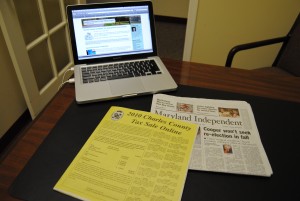Tax-free Tax Lien and Tax Deed Investments
 You might have asked this before, “Is it possible to invest in tax liens and tax deeds tax free?” Well, the answer is yes. It is entirely possible to use cash from a self-directed IRA to invest tax free in tax lien certificates and tax deeds.
You might have asked this before, “Is it possible to invest in tax liens and tax deeds tax free?” Well, the answer is yes. It is entirely possible to use cash from a self-directed IRA to invest tax free in tax lien certificates and tax deeds.
You see, if you use the cash from a regular self-directed IRA to invest in tax deeds and tax liens, your cash will grow tax free until you decide to withdraw from your own account after you retire. However, if you plan to use the cash from Roth self-directed IRA and you did not withdraw until you retire, you will not pay your profits’ taxes! Sounds great, isn’t it?
Though a lot of brokerages may say that they contain self-directed IRAs, these may not be true. A true self-directed retirement account can permit you to invest anything as long as it is not prohibited by the law. Investments that are allowable are tax deeds, tax lien certificates, notes, real estate, and other usual investments. True self-directed IRAs are not allowed to sell investments but they suggest investment types that you can utilize your self-directed IRA account for and may even teach you in doing the paperwork but they cannot make any commission.
Now, retirement account specialists say that you are only allowed to roll-over the money from your 401k if you are not working anymore for the company where you set up your retirement account from. But you can roll over the money from a regular IRA account into a self-directed IRA.
Just a heads up, there will be fees when you open and maintain a self-directed IRA but they are of minimum compared to taxes that you will be paying for the government for your capital gains and investment income.
Tags: tax deeds, tax lien certificates, tax liens